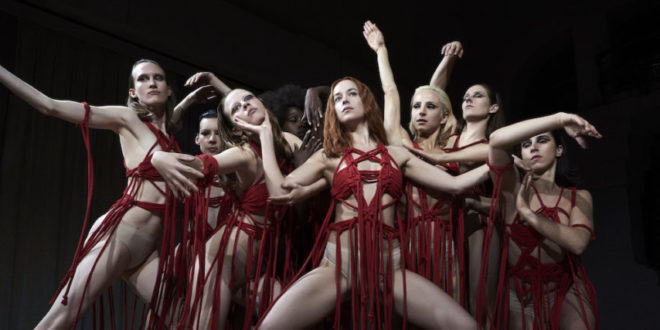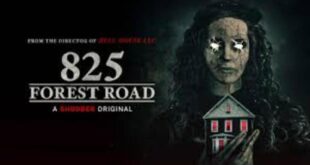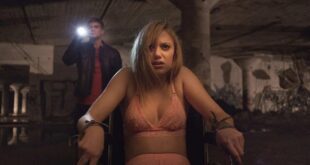Remakes are tricky. A lot of them fall into the trap of being “but with cell phones” copies of their originals. Some are so unique, they might as well be different movies. The best remakes are defined by their intention. By that metric, Luca Guadagnino’s Suspiria (2018) is a triumph. It’s a film speaking directly to Dario Argento’s masterpiece and challenging it, the way a remake ought to. It wears the name of its mother, and grows to be its own woman.

I love Argento’s film to an irrational, weeping degree. I love the colors, the lights, even the Goblin soundtrack that wails out of my headphones as I write this review. It’s a dream and a nightmare… a defiant shattering of expectation. When I heard that Suspiria was being remade, I had the same doubts and terrors that every fan of a film as unique, beautiful, and wild as the 1978 classic. I knew that it would be a difficult dance, a real challenge.
Guadagnino made the choice to face that challenge and build a film that lives in the same world, but thrives as an inverted reflection of the original.

Argento’s Suspiria is a dream outside of time and place. Guadagnino’s film uses the original setting of a German dance studio to tell a story about Germany in a specific time and place, one that uses all the tensions of rebellion, youth, and secret societies to tell a real story of fantasy.
Argento treated his actresses as canvasses upon which he could splatter and splash his arsenal of color, terror and cinema. Guadagnino treats his actresses as agents of chaos and magic, as in control of their film as the witches in the story.
Recently, Dario Argento has expressed his opinion about the remake, claiming that it betrayed the spirit of the original film. I’m not surprised, because the new film does something to the original mythos of Argento’s film that I believe he would never do: give the characters agency. Guadagnino decided to let Susie Bannion (Dakota Johnson) become the subject of his horror movie. She dances through the film with purpose, witnessing and encountering horrors, but never falls victim to them.
I reconcile the tension between the two films in this way: Argento’s Suspiria feels like a prophecy designed by the witches themselves. It has all the dark magic and supernatural qualities of a terrible myth. It is how the witches of Suspiria imagine their fate. Luca Guadagnino’s film decides to let the events of that prophecy spin out in the world the witches truly live in.

I saw the film in theatres and decided to wait until I could watch it again at home before reviewing it. Theatres give a movie like Suspiria a sense of spectacle that can blind you to things like a long running time or too many plot threads. Watching it at home, on my couch, I could feel these flaws. The film does have quite a few storylines and concurrent narratives, and your focus as a filmgoer suffers as a result. The performances by Dakota Johnson and Tilda Swinton are electrifying, driving the crackling darkness of Suspiria’s world directly into your heart with each line read, each gesture made, and each long look into camera.
Of course, you can’t talk about Suspiria without talking about the score. Radiohead’s Thom Yorke does an admirable job building atmosphere and generating a mood throughout the film, but he isn’t Goblin. Nothing but Goblin will ever be Goblin.
I won’t spoil the film at all, but I will say there’s been a rash of wondrously explosive endings in horror over the past couple of years with Hereditary, Mandy, and this glorious movie’s celebration of light and color that will stay with me.

After the film’s climax, Susie Bannion is heard saying, “Keep dancing, it’s so beautiful.”
This remake will dance in my head for years.
 PopHorror Let's Get Scared
PopHorror Let's Get Scared




